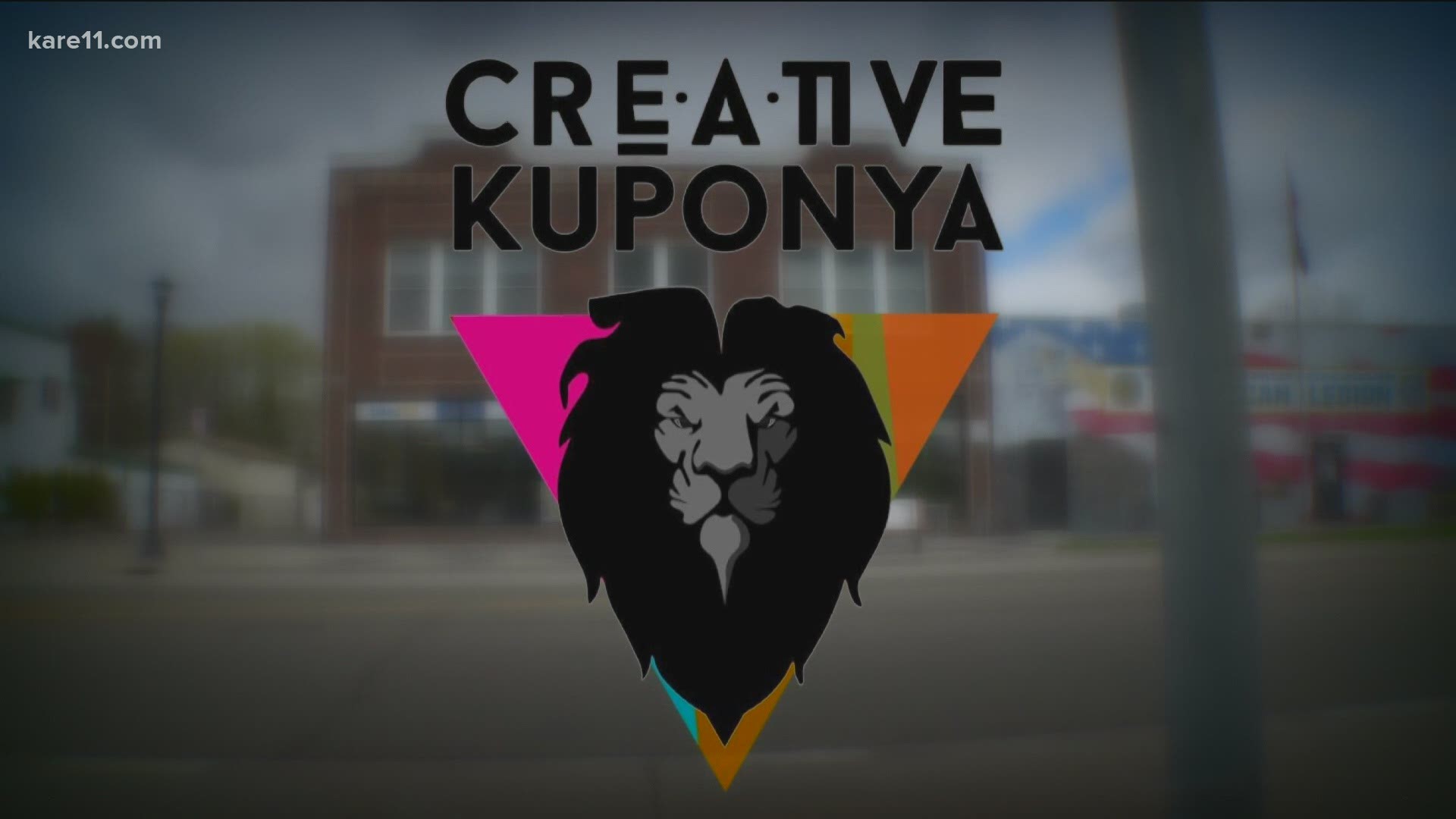MINNEAPOLIS — Demand for mental health support has surged within Twin Cities communities of color ever since the death of George Floyd last summer, but nothing could prepare Jamil and Sara Stamschror-Lott for the last few days.
"Our calls have probably doubled, at this point," said Sara Stamschror-Lott, who co-founded the Creative Kuponya therapy practice with her husband, Jamil, in 2017.
"The Kuponya stands for healing in Swahili," Jamil said. "But healing is funny term right now. There is a price associated with it, especially now."
After learning that a police officer shot and killed Daunte Wright on Sunday, just a few miles from the ongoing trial of Derek Chauvin, the couple was suddenly trying to strike a balance between helping others and taking care of themselves.
"I know I have colleagues in the field who have just taken a step back from doing this work because they're just so overwhelmed by holding the trauma, while also experiencing the traumas themselves," Sara said.
Nobody would blame Sara or Jamil for pulling back as well. Their previous therapy office burned during the unrest following George Floyd's death last summer, and the police killing of Daunte Wright served as another reminder of the dangers they can't control as a biracial couple with a young daughter of their own.
"This morning I was home alone and his face came up on the news and I just couldn't help but weep because it could be my baby," Sara said. "There are already places we, as a family, just won't go because we don't feel safe."
"I just keep trying to rely on my faith and supportive structure around me to not let myself get so anxious that I break," Jamil said. "I let myself know that it's okay to take a break so I don't break."
For Jamil and Sara, that means taking a break from social media and news coverage in order to care for themselves each evening, before helping others each day.
"Today, I'm headed to the Hope Center, a space Allina Health provided for students to have community and school," Jamil said. "I'm working with them to do a healing space where we sit down and process pain."
Jamil says the first step in that process is finding a place where you feel safe accessing that pain.
"I say identify your resources, identify what you have, your supportive spaces," Jamil said. "Show yourself grace and give yourself a break. For people of color, particularly Black folks, it's critical that we find an affinity group that has healthy mechanisms built within it. That way we don't experience so much racial battle fatigue, we're not so beaten down that we can't take on the next day."
The couple also encourages clients to turn to creative outlets like vision boards.
"We use that to get their brains thinking about a hopeful future," Sara said.
But she says you don't even need hope to get started.
"There are other factors in healing beyond hope, like resiliency and community," she said. "If you don't start with hope, but you have a piece of resiliency or you have a community that will surround you and hold you, then you might start to feel hope somewhere inside (yourself)."
Other times, Jamil says you sense it in others.
"Surprisingly, I'm hopeful in this very moment," Jamil said. "I just got done doing a marital session and I felt like there was a common understanding in that relationship. When I see those moments where we can laugh and we can feel like we're going to be okay, then I think it actually helps me feel like we're going to get through this."
Creative Kuponya is currently taking donations and selling sweatshirts to help pay for free and low-cost therapy and mental health services to BIPOC people. Click here, for more information.

